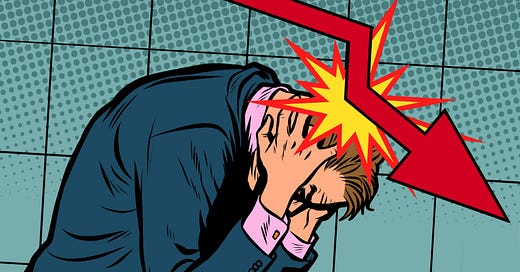This Too Shall Crash
Before President Trump stakes his reelection on the economy, he should remember the warnings of Professor Hyman Minsky.
During the 2008 global financial market meltdown, we were painfully reminded of the teachings of the late economist Hyman Minsky, the renowned expert on financial and credit market cycles. Minsky never tired of warning that credit bubbles and prolonged bull markets generally end in epic economic and financial market collapses.
Evidently President Trump and his economic team have either never been warned about “Minsky moments” – sudden, drastic collapses of asset values following prolonged growth -- or else they are making the classic mistake of thinking that this time will be different. Otherwise, it is difficult to explain why, 10 months before the election, President Trump is placing a booming stock market and a strong economy at the front and center of his re-election campaign.
There can be no doubt that we have been experiencing a global credit market bubble that would have made Minsky shudder – one that an unprecedented and prolonged period of ultra-easy monetary policy by the world’s major central banks helped to inflate. Indications of this monetary largesse can be found in the world’s four largest central banks’ balance sheets, which together have increased by a staggering $10 trillion.
Years of very easy money have spawned reckless lending around the globe. So much so, in fact, that the size of today’s global leveraged loan market is some two and a half times the size of the U.S. subprime market on the eve of the 2008 Lehman bankruptcy. Other examples of unsound lending include the more than $3 trillion in dollar-denominated loans that have been made to the emerging market corporate sector and the large loans that keep being made to the over-indebted Eurozone governments.
Worse yet, many of these loans have been made at interest rates that do not nearly compensate lenders for the likelihood of default. One has to wonder what the credit markets have been thinking when they extend a negative interest rate loan to a country as indebted as Greece or to shaky European corporate borrowers. What were lenders thinking when they extended a 100-year loan to Argentina in 2017? How could they continue to lend to as troubled a country as Italy at lower interest rates than they do to the United States?
Years of ultra-easy monetary policy have also given rise to excessively frothy global equity markets. As an example, U.S. equity prices have increased now by more than threefold since their nadir in March 2009 as the equity bull market continues in its 11th year. As Nobel laureate Robert Shiller has noted, this has resulted in U.S. equity valuations having risen to levels only experienced three times in the last 100 years.
Yet, despite the clearest signs that global credit has been grossly misallocated and that global equity valuations are stretched, both markets and policymakers seem to be remarkably sanguine. It would seem that the furthest thing from their minds is that once again we could experience a Minsky moment complete with a violent repricing of risky assets and real financial market strains.
One reason to be surprised at the market and policymakers’ current complacency is that there are already early warning signs that financial troubles might lie ahead. Argentina has now yet again defaulted on its bond obligations, Chinese companies are defaulting at an increasing rate, and the WeWork equity bubble has spectacularly burst.
Another reason for surprise is that there are many indications that the world economy is slowing down and that geopolitical tensions are rising. Brexit continues to hound the European economy the same way the ever-expanding Trump trade war has the U.S. economy. At the same time, rising U.S.-Iranian tensions raise the risk of an international oil supply disruption, while the spread of the coronavirus could deal the Chinese economy another body blow.
Against this background, one would have thought that with the world economy already slowing, markets would be pricing in at least some possibility that the deteriorating Hong Kong political situation might cause an escalation in the U.S.-China trade war. Or that markets might attach at least some probability to a hard Brexit, an oil price shock as a result of U.S.-Iran tensions, a further spread of the coronavirus, or the possibility that Elizabeth Warren or Bernie Sanders might win the 2020 election.
Minsky taught that markets and politicians have short memories and that they repeatedly delude themselves into believing that this time will be different. Sadly, once again he is being proved correct. President Trump is giving too much prominence to the stock market in his re-election campaign. Today’s market exuberance – and the political exuberance it begets – are foolish in the face of mounting economic and political risks.










